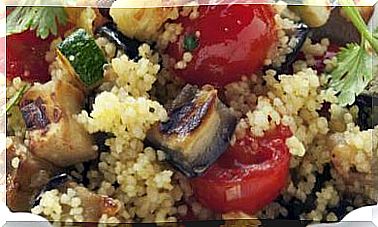Is Fasting With Lemon Juice And Maple Syrup Effective And Safe?
Fasting with lemon juice can help you lose some weight, activate metabolism, and reduce inflammation. But it is better that you do not extend it beyond 72 hours.

Fasting with lemon juice for ten days – which for many experts is too long – was proposed in 1941 by the American naturopath Stanley Burroughs. His goal was to detoxify the body. However, it is currently touted as a miracle weight loss method. What are the real effects? How is it done correctly?
Is fasting beneficial?
Fasts lasting 12 to 72 hours – much shorter than Burroughs proposed – are associated with a number of benefits in healthy people:
- Helps control blood sugar and lowers insulin resistance. A study led by Dr. Kerry Mansell, from the University of Saskatchewan (Canada), showed that an 18-20 hour fast improves blood sugar in the first hour and promotes weight loss.
- It reduces inflammation, which reduces the risk of developing cardiovascular diseases, autoimmune diseases and cancer, among others.
- Helps regulate blood pressure and cholesterol and triglyceride levels.
- Improves brain function and prevents neurodegenerative disorders.
- Activates metabolism and promotes weight loss.
How fasting with lemon juice and maple syrup helps
The effects of the lemon fast are based on the properties of the lemon itself, along with those of maple syrup and cayenne pepper.
- Lemon provides vitamin C and organic acids that promote liver function. It also contains antioxidant and anti-inflammatory active principles such as hesperidin, diosmin, eriocitrin, narigin and naringinin. These compounds can fight fat accumulation.
- Cayenne pepper contains capsaicin, which activates metabolism and digestion. A review of studies directed by Dr. Richard D. Mattes of Purdue University (United States) also showed that capsaicin is a thermogenic chemical agent that stimulates fat burning.
- Maple syrup provides carbohydrates and minerals, which also have antioxidant and anti-inflammatory effects.
In general, fasting with lemon juice provides between 625 and 1,250 calories per day, which reduces the usual caloric intake and contributes to losing weight and eliminating toxins, but it should be done with caution, only if you are completely healthy and do not is under optimal weight.
If you experience unpleasant side effects, you should end the fast immediately.
Advantages and disadvantages
Advantage
- Fasting can help you lose weight thanks to the temporary restriction in calorie intake and the fat-burning effect of the preparation.
- E l lemon acidification helps control excessive of the body.
- The detoxification that occurs can contribute to health.
Disadvantages
- Lemon can cause heartburn.
- The oral mucosa and tooth enamel can be attacked by lemon. To avoid this, drink with cane and rinse your mouth after drinking the juice.
- A yo-yo effect can occur: after fasting you can quickly regain the weight you have lost. Remember that at the end of the fast you must regain a complete and balanced diet and do physical exercise.
- It provides more carbohydrates than fats and proteins, the most essential nutrients.
How to fast with lemon juice
During the fast, only one drink made from water, lemon juice, maple syrup and cayenne powder is taken:
Ingredients for a glass:
- 2 tablespoons freshly squeezed lemon juice (about the juice of one lemon)
- 2 tablespoons maple syrup
- 1 pinch of cayenne powder
- 300 ml of water
This drink is taken 6 to 12 times during the day.
There are protocols that recommend maintaining this fast for 10 days or 7 days in a more accessible version. In these long fasts, it is advisable to carry out three adaptation days:
- The first day you continue with the usual diet, but eliminate ultra-processed foods, caffeine, added sugars, dairy products and meat if you are a consumer.
- On the second day, solid foods are replaced by green smoothies, broths and soups. Fresh fruit and vegetables are consumed.
- On the third day, you have lemonade and freshly squeezed orange juice, as well as herbal teas.
- For the remaining 4 days, only lemonade and diuretic infusions are taken if desired.
- Then, at the end of the fast, the adaptation is carried out the other way around: one day orange juice is taken, the next smoothies, broths and soups are introduced, and the next, fresh fruits and vegetables.
Is a prolonged lemon fast safe?
This strict fast leads to a lack of nutrients, especially protein and fatty acids, for a long time. There is a risk of losing muscle mass and damaging the state of the intestinal microbiota.
A good part of the benefits of a fast are due to the fact that the metabolism is put into a state of ketosis, that is, it goes from obtaining the most energy from glucose to doing it from reserve fats in the body. But this change does not occur if you eat more than 50 g of carbohydrates a day.
This figure is exceeded with the protocols established for fasting with lemon and maple syrup, since a minimum of 12 tablespoons of syrup containing 156 g of carbohydrates is consumed . Therefore, if fasting with lemon and maple syrup has any benefit, it is only because of the reduction in the usual calorie intake.
Other proposals for fasting and a restrictive diet that allow a moderate intake of foods opt for those that provide protein, fat, minerals and vitamins, in amounts that do not exceed 500-800 calories per day, and are taken in a window of 6-10 hours (so nothing is eaten for a continuous period of 14-18 hours). This is the intermittent fasting proposal that has the most scientific support.
If you still want to try the lemon fast with maple syrup, the sensible thing is to limit it to 2-3 days, and then resume a complete and balanced diet with the appropriate proportions of protein, carbohydrates, fat, fiber, minerals and vitamins.
Scientific references:
Michitaka Naito et al. Lemon Polyphenols Suppress Diet-induced Obesity by Up-Regulation of mRNA Levels of the Enzymes Involved in beta-Oxidation in Mouse White Adipose Tissue. Journal of Clinical Biochemistry and Nutrition.
Satyajit D. Sarker et al. Effect of citrus flavonoids, naringin and naringenin, on metabolic syndrome and their mechanisms of action. Advances in Nutrition.
Richard D. Mattes et al. The Effects of Capsaicin and Capsiate on Energy Balance: Critical Review and Meta-analyzes of Studies in Humans. Chemical Senses.
Kerry Mansell. Effects of intermittent fasting on health markers in those with type 2 diabetes: A pilot study. World Journal of Diabetes.









